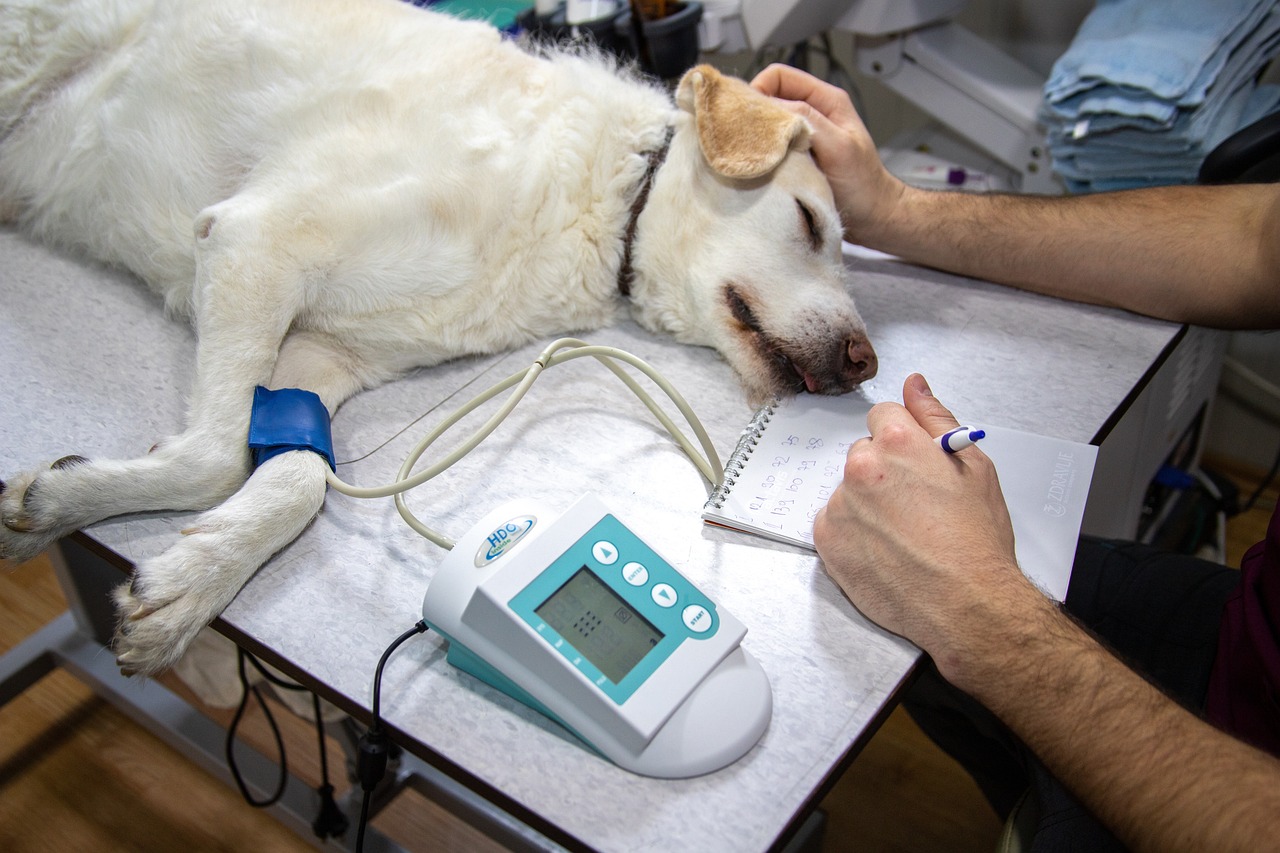Consulting with a Veterinarian about Herbal Remedies: A Comprehensive Guide

In recent years, there has been a growing interest in alternative medicine for pets, particularly herbal remedies. Pet owners are increasingly looking for natural ways to manage their pets’ health, seeking alternatives to conventional medications. However, integrating herbal remedies into your pet’s care requires careful consideration and consultation with a veterinarian. This guide explores why it’s crucial to consult with a vet before using herbal remedies, how to approach this discussion, and what to expect from the process.
The Rise of Herbal Remedies for Pets
Herbal remedies have been used for centuries in human medicine, and their popularity has surged in veterinary care as well. From treating common ailments like arthritis and digestive issues to supporting overall wellness, herbs offer a range of benefits. For example, turmeric is known for its anti-inflammatory properties, while chamomile can soothe digestive problems.
Despite their natural origins, herbal remedies can have potent effects and interact with other medications. Therefore, it’s essential to approach their use with caution and professional guidance.
Why Consult with a Veterinarian?
1. Safety and Efficacy
The primary reason to consult with a veterinarian before administering herbal remedies is to ensure the safety and efficacy of the treatment. While many herbs are beneficial, they can also have side effects or interact with other medications your pet might be taking. For instance, some herbs can interfere with blood-thinning medications or cause adverse reactions in pets with specific health conditions.
A veterinarian with knowledge of herbal medicine can provide insights into which remedies are safe and effective for your pet’s particular condition. They can also help you understand the appropriate dosage and administration methods to avoid potential harm.
2. Customized Treatment Plans
Every pet is unique, with individual health needs and conditions. What works for one pet may not be suitable for another. A veterinarian can tailor herbal treatments to your pet’s specific needs, taking into account their age, weight, breed, and overall health status. This personalized approach ensures that the remedy is not only safe but also effective for your pet’s unique situation.
3. Avoiding Potential Interactions
Herbal remedies, like conventional medications, can interact with other substances. For example, some herbs may affect the absorption or effectiveness of prescription medications. A veterinarian can help identify and mitigate these interactions, ensuring that herbal treatments do not compromise your pet’s health or the efficacy of their current medications.
4. Monitoring and Adjustments
The response to herbal remedies can vary, and ongoing monitoring is often required to assess their effectiveness and adjust dosages if necessary. Regular check-ins with your veterinarian can help track your pet’s progress and make any needed adjustments to the treatment plan. This ensures that your pet benefits from the herbal remedies without experiencing adverse effects.
How to Approach Your Veterinarian About Herbal Remedies
1. Prepare for the Consultation
Before meeting with your veterinarian, gather information about the herbal remedies you are considering. Research the herbs, their potential benefits, and any possible side effects. Make a list of your pet’s current medications, health conditions, and any symptoms you hope to address with herbal remedies. This information will help your veterinarian provide the most informed advice.
2. Discuss Your Goals
Clearly communicate your goals and reasons for considering herbal remedies. Whether you’re seeking a natural alternative to conventional medications or looking to complement your pet’s existing treatment plan, sharing your objectives helps your veterinarian understand your perspective and provide tailored advice.
3. Ask Questions
During the consultation, don’t hesitate to ask questions about the herbal remedies you’re interested in. Inquire about their safety, effectiveness, and potential interactions with your pet’s current medications. Also, ask about the appropriate dosage and administration methods to ensure the best outcomes.
4. Follow Recommendations
If your veterinarian approves the use of herbal remedies, follow their recommendations carefully. Adhere to the suggested dosage and administration instructions, and monitor your pet for any changes in their condition. Regular follow-up appointments may be necessary to assess the effectiveness of the treatment and make any needed adjustments.
Common Herbal Remedies for Pets and Their Uses
1. Turmeric
Turmeric, known for its anti-inflammatory properties, is often used to support joint health and reduce pain in pets with arthritis. It contains curcumin, which has been shown to help alleviate inflammation and support overall joint function. However, turmeric should be used cautiously, as high doses can cause digestive upset in some pets.
2. Chamomile
Chamomile is a gentle herb used to soothe digestive issues and promote relaxation. It can help alleviate symptoms of gastrointestinal upset, such as nausea and indigestion. Chamomile can also be used as a mild sedative to calm anxious pets. However, ensure that your pet is not allergic to chamomile before using it.
3. Echinacea
Echinacea is commonly used to support the immune system and help prevent infections. It may be beneficial for pets with weakened immune systems or those recovering from illness. However, Echinacea may not be suitable for pets with autoimmune conditions, so consult your veterinarian before use.
4. Ginger
Ginger is often used to address nausea and support digestive health. It can be particularly helpful for pets experiencing motion sickness or digestive upset. Ginger has anti-inflammatory properties and can also support joint health. However, excessive use may lead to gastrointestinal upset, so it’s essential to use it in moderation.
5. Milk Thistle
Milk thistle is known for its liver-supportive properties. It can be used to help detoxify the liver and support overall liver function. This herb is often recommended for pets on long-term medications or those with liver conditions. Ensure proper dosing, as excessive amounts can lead to digestive issues.
Evaluating the Effectiveness of Herbal Remedies
Once you begin using herbal remedies, monitoring your pet’s response is crucial. Look for improvements in the symptoms you aimed to address and watch for any adverse reactions. Keep detailed records of your pet’s condition, including any changes in behavior, appetite, or overall health. Share this information with your veterinarian during follow-up appointments to assess the effectiveness of the treatment and make any necessary adjustments.
Conclusion
Consulting with a veterinarian about herbal remedies is essential for ensuring the safety and effectiveness of natural treatments for your pet. By working with a knowledgeable vet, you can integrate herbal remedies into your pet’s care plan safely and effectively, enhancing their health and well-being. Remember to prepare for your consultation, ask questions, and follow your veterinarian’s recommendations to achieve the best outcomes for your furry friend.




